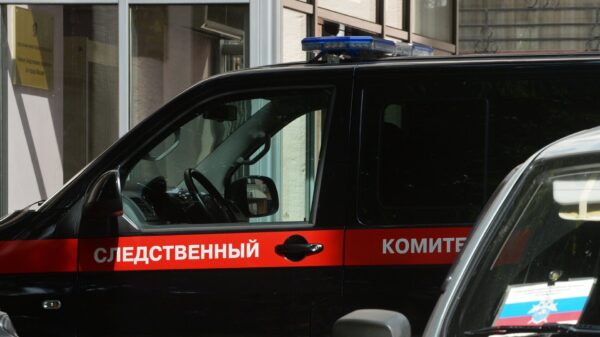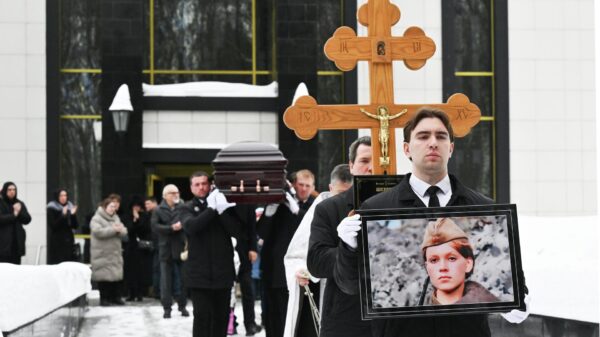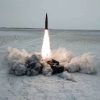 The aftermath of the recent strikes is easy to detect — this is the shell of the building of the Ukrainian Danube Shipping Company. Photo: Julian Simmonds for The Telegraph
The aftermath of the recent strikes is easy to detect — this is the shell of the building of the Ukrainian Danube Shipping Company. Photo: Julian Simmonds for The Telegraph
Ukrainian ports on the Danube were attacked three times this week alone, in the early hours of Sunday, Monday and Tuesday.
During Monday's raid, at least one drone — possibly knocked off course by Ukrainian air defenses — crashed and exploded on a Romanian river bank, marking the first confirmed Russian strike against NATO territory.
Romania initially denied these reports , then downplayed their importance, believing that they did not pose a threat to the country's security — the drone landed in an uninhabited forest.
Such a reaction of local residents is puzzling. Many people here think that two drones landed in Romania that night – not just the one that was caught on camera. Some suspect that this may not have happened for the first time.
“This is bad,” said Oleksiy Goncharenko, an MP from neighboring Odessa, when asked how bad the damage was. “I can’t give numbers, but as far as I know, it’s bad. Some of the infrastructure there is really damaged.»
«It's clear they're attacking Ukrainian agricultural exports»
The Battle of Bessarabia is an air battle far from a ground war further east.
At stake is trade, not territory. But in its own way it is no less important for the outcome of the war.
The de facto Russian blockade of the Ukrainian Black Sea in the first weeks of the invasion led to a sharp increase in world grain prices and prompted warnings. hunger in Africa and the Middle East.
This has forced many exporters to choose an alternative route: to deliver grain by road to the river ports of Izmail, Reni and Kiliya on the Danube.
From there, the grain is shipped by barges along the river and canal to the Romanian port of Constanta, where it is finally loaded onto sea cargo ships.
A deal brokered by Turkey and the United Nations to allow grain ships to continue to leave Odessa and other Ukrainian seaports has eased some of the pressure on the Danube.
 Aleksey Goncharenko said that Putin «wants to cause as much trouble as possible to the world.» Photo: Julian Simmonds for The Telegraph
Aleksey Goncharenko said that Putin «wants to cause as much trouble as possible to the world.» Photo: Julian Simmonds for The Telegraph
But that deal expired on July 17, when Vladimir Putin refused to renew it on the grounds that Western sanctions and marine insurance premiums were unfairly hindering Russia's own exports.
Almost immediately, the heaviest missile attack on Odessa was the blow she ever suffered. A week after the agreement expired, the first drones began to strike Danube ports.
“It is clear that the Russians are attacking Ukrainian agricultural exports,” Mr. Goncharenko said.
The logic, he says, is clear: Putin was unable to carry out a veiled threat to sink civilian cargo ships. but hitting infrastructure — bunkers, port facilities and other facilities — could have the same result.
So Putin wants to undermine Ukraine's agricultural exports. He wants to cause the world as much trouble as possible. And thanks to food security, he took the world hostage. He will continue to do this, hitting Odessa and the Danube,” he said.
“It’s scary for the children”
The immediate goal is to deprive Ukraine of export earnings. But the threat of rising food prices could also be used to increase international pressure on Ukraine and its allies to reach an agreement.
By now, locals are familiar with the situation.
» The first raid was on Reni on July 25. And exactly a week later it was our turn,» said Kirill Dimov, Anastasia's husband, secretary of the Izmail Rotary Club and a kind of support for the local community.
“It's scary for kids. Adults are just extremely annoying. Causes a more aggressive reaction,” he said. “The point is, it won't work. If they think that sleep deprivation will make us give up, they are wrong. It only angers us.”
Drones take off from an airfield in Crimea, fly straight across the Black Sea and follow up the river to find their intended targets: industrial and agricultural facilities in the vicinity of Kiliya, Izmail and Reni.< /p> 0709 drones Ukraine Romania
Shaheeds fly slowly and usually have at least a few hours' notice before they arrive, so when the explosions start, most people are in shelters.
But they come in waves, and the hum of their cheap gasoline engines can run for four hours . It usually starts after 1 a.m. and ends at 6 a.m.
Many of them shot down — the Ukrainian military said they intercepted 17 incoming drones during the Sunday night raid. Early on Wednesday morning they shot down 15 out of 25.
But some manage to get through.
Izmail is the headquarters of the Ukrainian Danube Shipping Company, a state enterprise. which controlled river exports was one of the first targets. Its 11-story office building, the tallest building in the city, is now a ruin.
There are drone-sized holes in the ferry terminal, the port's main granary, and factories and warehouses. The aluminum semi-cylinder of the granary is folded in half.
This is just the damage that has already been reported: The Telegraph was not allowed to view other damage for security reasons.
 Port of Izmail suffered as a result recent Russian strikes. Photo: Julian Simmonds for The Telegraph
Port of Izmail suffered as a result recent Russian strikes. Photo: Julian Simmonds for The Telegraph
As in many theaters of war, volunteers play a significant role.
Mr. Dimov and his friends at the Rotary Club set up searchlights for the air defense forces funded by public funds. So far they have bought 18 pieces. The army has given him permission to share footage of them in use, with tracer lights flying into the night sky.
Last month, a British entertainment firm donated three extremely powerful «lanterns». guns» designed for outdoor concerts.
The battle here is so delicate that few will comment on how successful the Russian campaign has been. Izmail Mayor Andrei Abramchenko declined to be interviewed, citing military restrictions.
The military reports the number of downed drones, but often does not mention how many of them managed to get through. Mr. Dimov says there have been no civilian casualties to his knowledge, but in line with Ukrainian government policy, there are no official figures for military casualties.
Amounts of grain lost in raids or detained export due to damage are also secrets. But the critical importance of the Danube route is obvious to everyone.
The volume of exports through the river port has increased 80 times since the beginning of the war, says Roman Razinkin, a marine engineer, lecturer at the Izmail Maritime Academy and president of the Rotary Club.
The route is clearly overloaded.
Single-lane road from Odessa is crammed with articulated trucks, the vast majority of which are hauling tall trailers with tents and sluice gates for grain.
 The importance of the Danube export route from Ukraine has grown rapidly, and with it the queues to enter the port of Izmail. Photo: Julian Simmonds for the Telegraph
The importance of the Danube export route from Ukraine has grown rapidly, and with it the queues to enter the port of Izmail. Photo: Julian Simmonds for the Telegraph
Recep Tayyip Erdogan, President of Turkey, flew to Sochi on Monday to urge Putin to return to the grain deal.
The raid that morning was no accident, Goncharenko said. “As always, they did it in front of some meeting. It's their style,» he said. Putin's refusal to return to an agreement, he predicted, was «bad history.» Bombs are likely to continue.
Even now, in daylight, the war in Ishmael still seems far away.
On Tuesday afternoon, a group of teenagers — and a few middle-aged locals who should have known better — defied a no-swimming sign. next to a 16th-century Ottoman mosque, threw clothes on anti-tank hedgehogs and bathed in the Danube.
However, the discomfort of the war permeates the sleepy afternoon.
The mosque is the only surviving part of the fort, which in 1790 stormed by 18th-century Russian general Alexander Suvorov.
Now there is a Soviet-era diorama depicting the battle, which highlights his leadership and embellishes the ensuing massacre of the inhabitants.
Being hit by Russian bombs changed attitudes to the Moscow imperial heroes.
Last year, the authorities in Izmail quietly removed his statue and put it in storage while they think what to do with it.
«He is the same as and everyone else,» Ms. Dimova said, referring to the Russian generals overseeing the current invasion.


























































Свежие комментарии